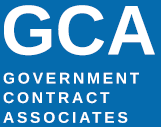(Editors Note. Increasingly we are seeing not only DCAA but also state audit agencies questioning costs that are incurred for the benefit of employees as unallowable entertainment expenses. These days most of these costs are labeled as “social” and hence unallowable “entertainment” expenses. Though some “social” costs may clearly be unallowable according to the FAR, DCAA has taken the initiative to further expand certain “social” costs as unallowable entertainment even though the FAR is silent on these specific costs while other such costs are clearly related to employee morale, health and welfare purposes which are allowable. In researching this issue we remembered an old article we printed several years ago addressing “Entertainment (Unallowable) Versus Employee Morale and Welfare (Allowable) Costs” and were struck at how pertinent it is today so we have recreated it here with a few modifications.)
Are such common costs as picnics, holiday parties, Friday get-togethers, sporting team events, recreation activities, etc. allowable costs under FAR 31.205-13, Employee morale, health, welfare, food service and dormitory costs and credits or unallowable costs under FAR 31.205-14, Entertainment costs? As consultants, we frequently encounter instances of government challenging costs as being unallowable entertainment costs that contractors believe are allowable employee morale expenses. Many times contractors have legitimate claims because the regulations are not really clear but choose not to fight auditors’ conclusions because the amount is too small to press the issue either by appealing to the CO or litigation. In this article, we intend to identify those type of costs that clearly fall under one of the two categories and then identify those costs that, in our experience, are less certain and how auditors are likely to view these uncertain costs.
FAR 31.205-13, the so-called employee morale and welfare cost principle explicitly cites such costs related to improving working conditions, employee-employer relations, employee morale and employee performance as allowable. It offers several examples such as house publications or newsletters, health clinics, recreation activities, employee counseling services and food and dormitory services. FAR 31.205-14, Entertainment, provides that costs of amusement, diversion, social activities and any directly associated costs such as tickets to shows or sports events, meals, lodging, rentals, transportation or gratuities are unallowable. The cost principle also states that costs specifically unallowable under this cost principle are not allowable under another cost principle even if it is called, for example, employee morale and examples are included such as social dining or country clubs or other organizations having the same purpose.
Both contractor and government auditors and COs have been very inconsistent in whether certain costs are allowable under the employee morale and welfare criteria or unallowable under the Entertainment principle. Courts have been asked to settle many of the questions. For example, Cotton & Co. (DOE BCA No. 426-6-89) ruled certain challenged expenses allowable such as (1) a $100 gift certificate to an employee hosting a company picnic (2) three birthday luncheons (3) luncheon and dinner parties with key personnel for career counseling and (4) occasional Friday afternoon pizza parties. Effective October 1, 1995, the government amended the FAR to explicitly state that unallowable entertainment costs cannot be deemed allowable under another cost principle. In addition, gifts were made explicitly unallowable unless they are part of compensation or part of an established plan to recognize employee achievement and recreation expenses were made unallowable with the explicit exceptions of costs of employee participation in company sponsored sports teams or employee organization to improve company loyalty, team work or physical fitness.
The Defense Contract Audit Agency has interpreted the rather broad 1995 changes to make numerous costs unallowable. Even when court decisions issued before 1995 allowed many activities (e.g. picnics), DCAA interprets the 1995 changes as making such events as picnics, holiday dinners and retirement parties unallowable. Unless such events are designed to improve employee loyalty, morale or fitness they will be questioned. Though auditors are now generally consistent in their views about allowability of the above events, their guidance stresses that such costs should be reviewed for reasonableness and materiality. In our experience, many auditors will not question such costs if they are not “material” while other auditors will attempt to identify such events and question the amount no matter how significant the dollar expenditures are. Though several commentators have taken issue with DCAA’s more aggressive position since 1995, the low dollar amount of questioned costs makes expensive challenges doubtful for now.
© 2026 Government Contract Associates. All Rights Reserved.
